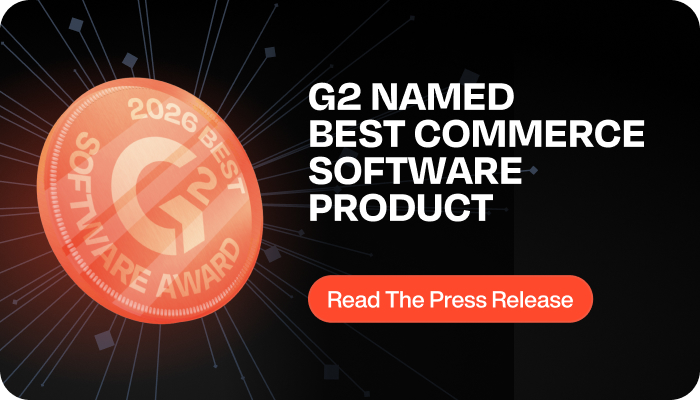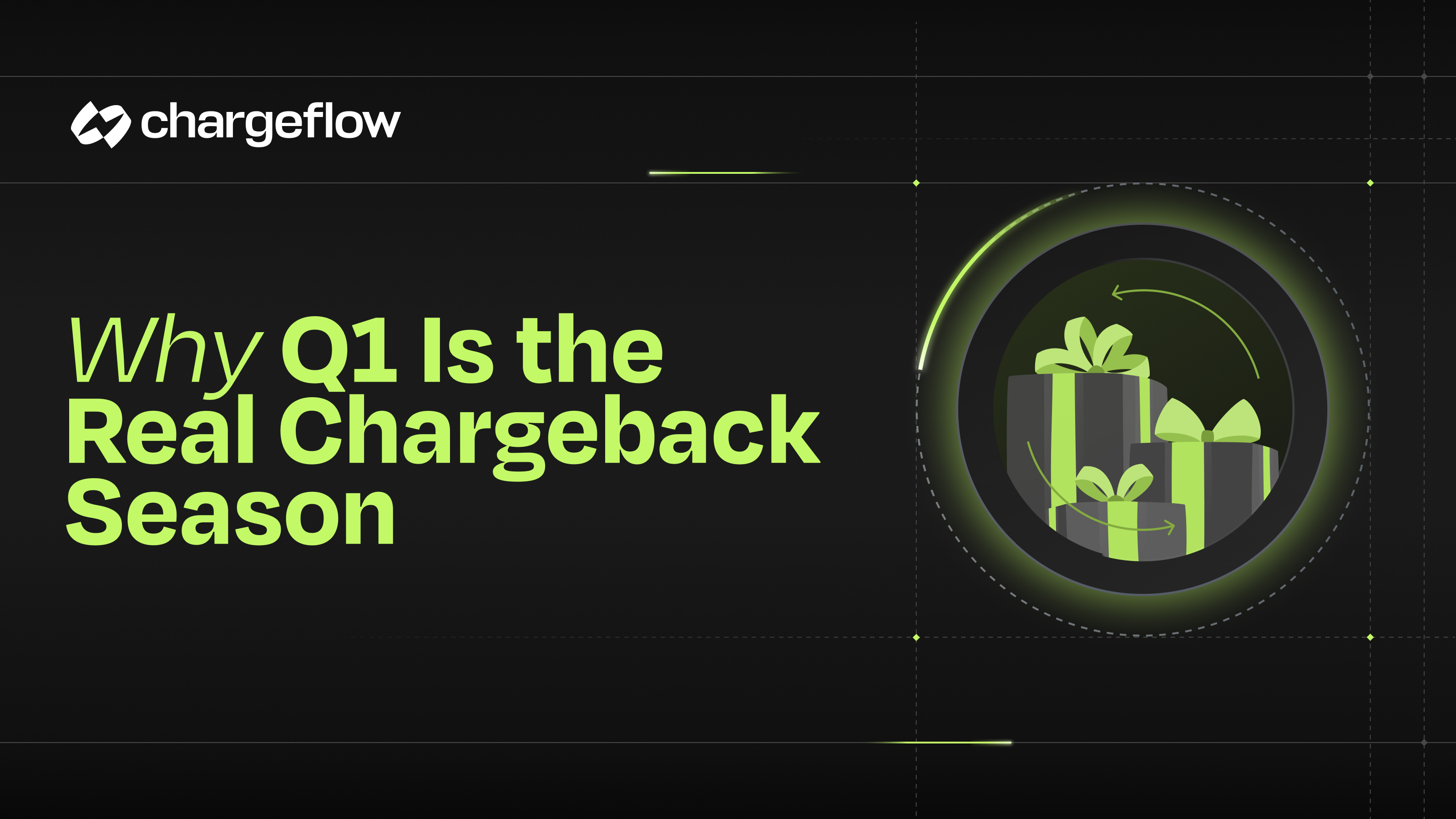5 Proven Strategies for Winning Chargeback Arbitration Every Time

Chargebacks?
No longer your problem.
Recover 4x more chargebacks and prevent up to 90% of incoming ones, powered by AI and a global network of 15,000 merchants.
Don't let chargebacks hurt your business! Discover 5 proven strategies to win chargeback arbitration every time and protect your profits. Start today!
Chargeback arbitration can be a stressful experience for any business, as success often hinges on seemingly small details or paperwork. If a chargeback is filed against your company, having the right strategies and knowledge in place can make all the difference when it comes to winning or losing the dispute.
In this blog post, we'll cover five proven strategies that you can use to increase your chances of victory when faced with an unfavorable chargeback arbitration case.
From understanding proper documentation to gathering evidence before petitioning for review, we will offer insight into what steps you should take in order to maximize the likelihood of success. So if you're trying to get ahead of potential disputes involving reversed payments, follow along as we uncover these invaluable tips!
Chargeback Arbitration Process
Chargeback arbitration is a critical dispute resolution process within the realm of electronic payments. It is considered the penultimate resort, initiated when previous mediation efforts have proven to be inadequate to resolve a disagreement concerning a transaction between a cardholder and a merchant.
This process typically comes into play when the involved parties have exhausted previous chargeback stages, such as pre-arbitration and rejection.
The chargeback arbitration process aims to deliver an equitable resolution by thoroughly examining all the relevant materials provided by the involved parties – the cardholder, merchant, and card issuer. In this complex mechanism, the role of the card issuer is to present supporting evidence on behalf of the cardholder, whereas the merchant is expected to submit relevant documentation to justify their stance on the disputed transaction.
Subsequently, an unbiased panel of experts, often comprising representatives from major card networks such as Visa or Mastercard, scrutinizes the facts submitted by both sides to make a fair judgment on the case. Throughout this intricate process, it is imperative that the cardholder, merchant, and issuer cooperate extensively and diligently to effectively present their respective standpoints.
Ultimately, the chargeback arbitration process serves as an indispensable mechanism in addressing conflicts in the ever-evolving landscape of electronic transactions, ensuring a sense of trust and security for all parties involved.
Chargeback Arbitration Fees
The cost of chargeback arbitration fees varies depending on the card network and the issuing bank. Typically, the cost ranges from $250 to $500, but it can go higher in some cases. The merchant initiating the arbitration process is responsible for paying these fees.
Importance of Preparation
The importance of preparation cannot be overstated, especially when it comes to chargeback arbitration. Being well-prepared for disputes ensures that you are equipped to protect your business from financial losses and maintain a healthy reputation.
During the preparation stage, several key factors should be considered: collecting and organizing compelling evidence that supports your case, understanding and adhering to the rules of the arbitration process, and training your team on how to properly address disputes.
Adopting best practices can significantly strengthen your case during chargeback arbitration. These practices often include keeping detailed records of transactions, monitoring customer behaviors to identify potential disputes, and implementing robust fraud prevention measures.
Ultimately, investing time and resources in thorough preparation will not only bolster your chances of winning a chargeback arbitration but also contribute to the overall success and longevity of your business.
Strategies for Chargeback Arbitration
1: Proper Documentation
Proper documentation is an essential strategy when dealing with chargeback arbitration, as it plays a crucial role in determining the outcome of a dispute.
The various types of documentation needed for chargeback arbitration may include transaction receipts, invoices, email correspondence, order confirmation details, proof of delivery, and any other relevant records that demonstrate the legitimacy of a transaction.
To effectively gather and organize documentation, businesses should implement a comprehensive and systematic approach to record management - ensuring that all relevant data is stored securely, easily accessible, and routinely updated.
Adequate documentation not only helps to protect the interests of the business in the face of chargebacks but also contributes to fostering trust and credibility amongst customers and financial institutions.
2: Timely Response
A timely response plays a crucial role in the realm of chargeback arbitration, as it can significantly impact the outcome of disputes and potentially help in mitigating losses. Being aware of and adhering to specific timeframes associated with each stage of the chargeback process can not only bolster a business's chances of successfully disputing a chargeback.
Also, preserve its reputation and maintain healthy relationships with financial institutions. Familiarizing oneself with these timeframes is essential in developing a robust chargeback management strategy.
Best practices for responding to chargeback notifications include promptly gathering all relevant information and documentation pertaining to the transaction in question, analyzing the reasons behind the chargeback, and crafting a well-structured and coherent rebuttal.
By doing so, businesses demonstrate their commitment to effectively addressing chargebacks and fostering an atmosphere of customer satisfaction and confidence.
3: Strong Evidence
In the realm of chargeback arbitration, the presentation of strong evidence plays a vital role in determining the outcome of the process. The importance of strong evidence cannot be overstated, as this is the substance upon which the arbiter relies to make their decision.
When preparing for arbitration, it is crucial to gather a diverse range of evidence types, such as transaction records, customer correspondence, delivery receipts, and any other relevant documentation that demonstrates the legitimacy of the initial transaction.
To present evidence effectively, it is essential to be both organized and concise -attaching clear labels to each piece of evidence and presenting it in a logical order that corroborates your claims.
Moreover, best practices dictate that one should be prepared to illustrate connections between the individual pieces of evidence, articulating a coherent narrative that showcases the strength of your case.
Adopting these approaches will increase your chances of successfully navigating the chargeback arbitration process and protect your business from unwarranted financial losses.
4: Understanding Reason Codes
Understanding reason codes is an essential aspect of strategies for chargeback arbitration, as they provide valuable insights into the causes behind customer disputes. Reason codes, in essence, are alphanumeric codes assigned by card networks such as Visa or Mastercard that indicate the specific reason a customer has initiated a chargeback.
These codes offer merchants a clear understanding of the issue at hand, ultimately enabling them to address related concerns more effectively. Grasping the importance of reason codes extends beyond mere awareness, as leveraging their insights can greatly aid in reducing chargebacks and improving the customer experience.
By proactively analyzing and addressing the root causes behind prevalent reason codes, merchants can optimize their dispute resolution processes, minimize chargeback occurrences, and ultimately maintain healthy relationships with their customers.
Knowledge of reason codes, coupled with the right approach, thus empowers businesses to turn potential chargeback setbacks into opportunities for growth and improvement.
5: Expert Help
Seeking expert help is a crucial step in effectively navigating the complex world of chargeback arbitration. Often, businesses are unaware of the best course of action, and it is essential to bring in a professional at various stages: from the initial arbitration request and evidence gathering to preparing submissions and handling appeals.
Several expert services are available in the market, including chargeback analysts, financial advisors, and legal consultants, each bringing unique value and experience to the table.
To choose the right expert for your particular situation, it is vital to evaluate their area of specialization, compatibility with your business model, and successful track record in dispute resolution.
Properly leveraging the knowledge and skills of well-versed professionals ensures a compelling case to mitigate chargeback losses and safeguard future revenue.
Final Thoughts on Chargeback Arbitration
Ultimately, having knowledge of the chargeback arbitration process and preparing for it is essential to winning chargeback arbitrations every time. This requires having documents ready, responding timely, giving compelling evidence, and striving to understand reason codes as exhaustively as possible.
However, with Chargeflow expert help, there is no need to worry about any of this. Our autopilot solutions handle disputes for you; from helping create compelling cases to researching and keeping track of your appeals in real time.
With our knowledgeable representatives guiding you through the challenging dispute process, there’s no obstacle you can’t conquer.
Hence, don’t wait any longer and prevent chargeback with Chargeflow now! Don't let chargeback become a sinkhole for time and money - invest in a more proactive strategy today with Chargeflow.

Chargebacks?
No longer your problem.
Recover 4x more chargebacks and prevent up to 90% of incoming ones, powered by AI and a global network of 15,000 merchants.



















































.png)








